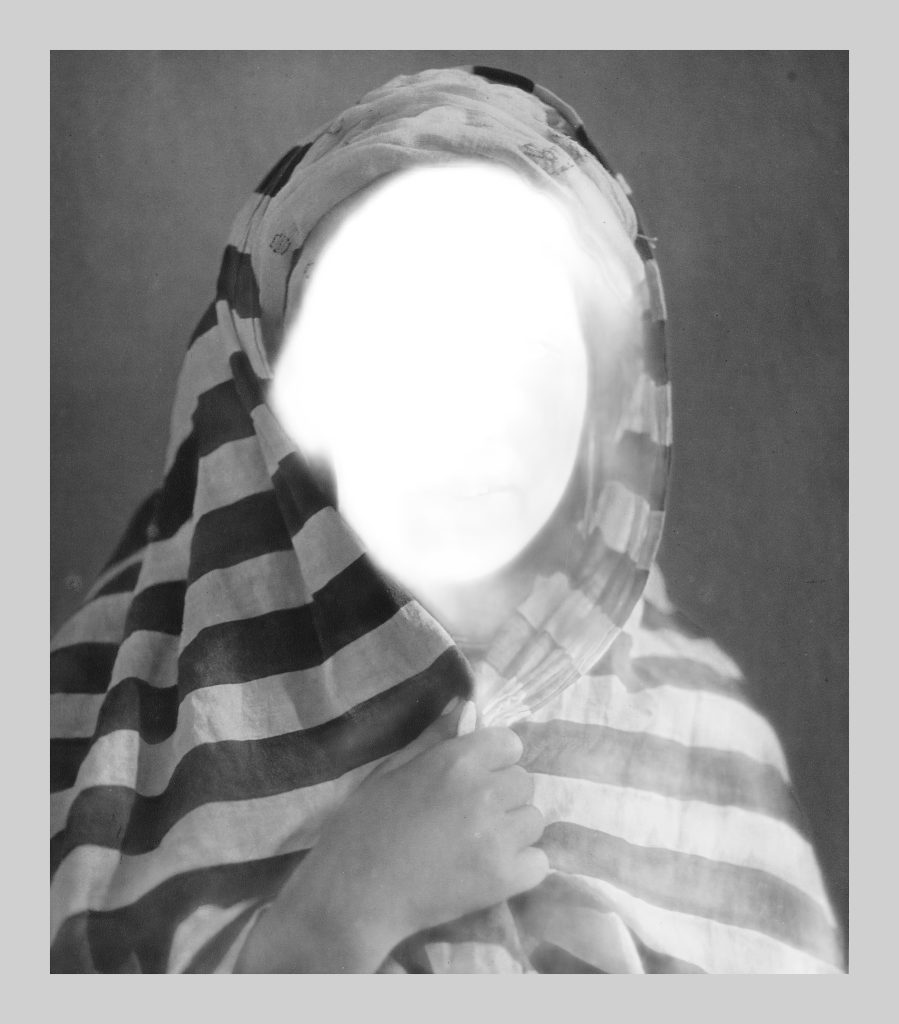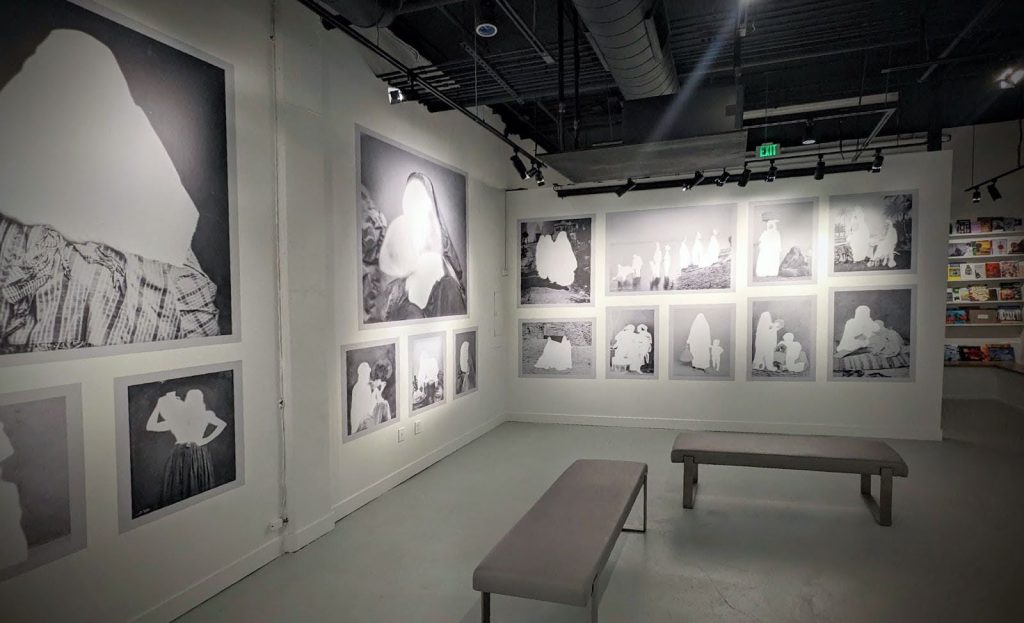
From world takeover to full automation, fears around artificial intelligence could make the plot of a good science fiction novel. Saudi-born new media artist Nouf Aljowaysir is adding a fresh anxiety to that list: the fear of cultural erasure. Commenting on the limitations of AI accurately representing her culture, Aljowaysir’s ongoing exhibition SALAF (Ancestor) explores these questions at Boulder’s East Window gallery through July 27.
Aljowaysir’s first marketing job exposed her to AI in 2018, when she began using the emerging technology to generate images and videos for client branding.
“Nobody knew what AI was,” Aljowaysir says. “It wasn’t common among people to understand algorithms or terminology.”
Aljowaysir then accepted an artist residency in New York City with ThoughtWorks Arts, designed for artists working with AI. Aljowaysir based her thesis during the six-month residency on understanding her cultural identity using these new tools.
Aljowaysir moved to the United States when she was 13. With her mother and other family remaining in Saudi Arabia, Aljowaysir hoped AI would supplement the cultural information her family and early life experiences gave her.
“I’ve traveled between countries my whole life,” Aljowaysir says. “I started studying where I come from.”

Tracing the family tree
Starting in the summer of 2020, Aljowaysir began tracing migrational patterns of her ancestors from Arabia to Mesopotamia. Aljowaysir interviewed her mother for the project, studied family photos and researched archival records.
Aljowaysir then plugged in family names, facts and places into Western AI systems.
“In order to test artificial intelligence, I have to collect a lot of data and visual imagery,” Aljowaysir says. “I saw a lot of stereotyping in the results — a lot of biases, a lot of generalizations, and not understanding what culture it’s looking at. … I was able to gain a better picture of who I am and where I come from [through] my mom’s story. I wasn’t able to get that from AI — what I got instead was superficiality.”
Aljowaysir then erased the figures found in the results using an AI technique called U-2 Net to evoke the experience of erasure she found while researching. The SALAF project — also on display at the Palmer Gallery in London — emerged from these photos.
Aljowaysir especially struggled to find AI-generated archival images of women. The technology often failed to recognize them because of their veils; as a result, SALAF primarily highlights women. AI also failed to recognize nomadic bedouin faces and instead churned out inaccurate stereotypes of the Arab world.
Advancing the narrative
Aljowaysir produced a 2022 film further detailing her experience with AI and her ancestral search: Ana Min Wein (Where Am I From)? Todd Edward Herman, founder and director of East Window, learned about the film through the Kadist Foundation’s social media channels. Based out of Paris, the foundation platforms contemporary artists who address contemporary social issues.
“The flaws [of AI] are less about science fiction and more about human error,” Herman says. “Outwardly the image, then to the relevance of cultural erasure, is certainly one of the things we want to explore with East Window — all the way down the line to the mechanics of what these networks are run by, which is the labor of people power. I thought it was a brilliant, clear thesis of Nouf’s, and the work was just amazing.”

With the problem of cultural erasure in mind, SALAF continues East Window’s mission to elevate the stories of marginalized communities.
“One of the things we do is make sure those narratives are not forgotten and in fact are advanced,” Herman says.
When Aljowaysir started SALAF, AI had not “blown up” to the level it has now. Many are currently questioning the technology’s runaway effect in recent years and whether we should blindly follow its lead.
“I don’t think there’s enough critical voices out there in the art world around AI,” Aljowaysir says. “As part of my research, I’m continuing the questions and thinking.”
Aljowaysir’s mother, who provided family stories to help Aljowaysir on her quest to find her cultural identity, is proud of her daughter’s work — even if she struggles to understand the tech-heavy AI side of the project, Aljowaysir says.
“Oral storytelling is such a powerful tool. Your grandmother passes things down to your mom. Your mom passes things down to you. I think that process is not really captured by AI. It doesn’t think that way. It categorizes the world through boxes or labels instead of poetic storytelling we have grown up with.”
ON VIEW: Nouf Aljowaysir – SALAF (Ancestor). Through July 27, East Window, 4550 Broadway, Suite C-3B2, Boulder. Free
